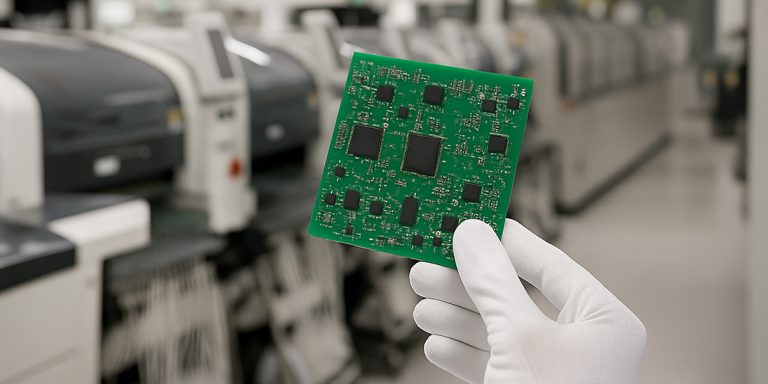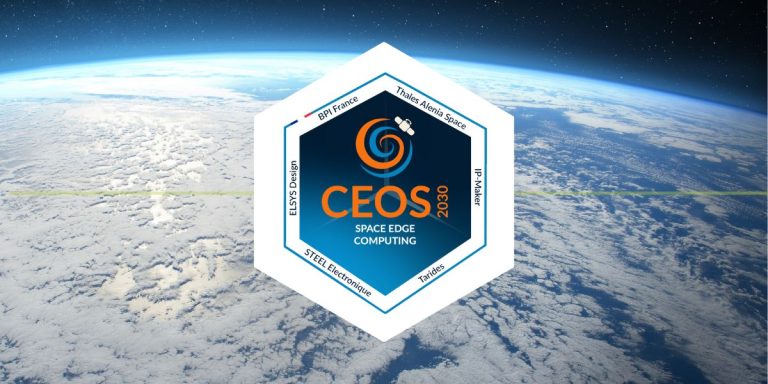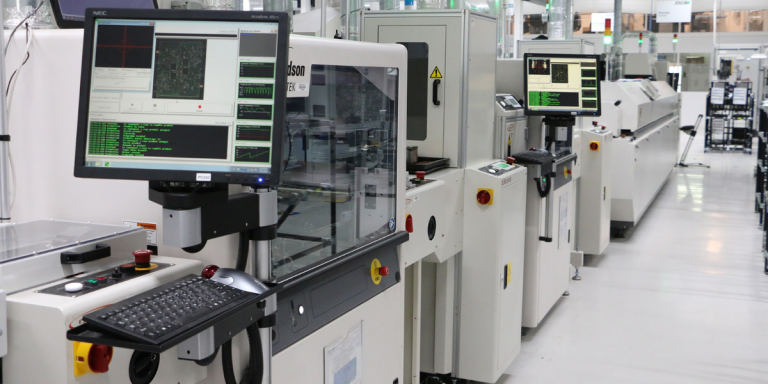“In this environment, ACTIA’s mission is more relevant than ever: to address with its customers the technological and industrial challenges of vibrant, value-creating, increasingly complex and sustainable electronics. By continuing to develop its technological and industrial roots and by affirming its position as an electronics expert, ACTIA aims to become THE benchmark in electronics for all its customers. For the group, it is about always being at the forefront of issues related to its business lines and meeting the expectations of its customers with regard to the challenges of mobility, security and connectivity in an increasingly digitalised world. ACTIA is therefore reaffirming its strategic priorities. We look forward to new challenges with confidence, following our roadmap, even if there are difficulties along the way that challenge our capacity to adapt and be resilient.”
Jean-Louis Pech, CEO of the ACTIA group.
Press conference held 19 May 2022
The challenges of on-board vehicle electronics
New vehicle architectures and on-board functions are becoming increasingly complex and automated. We are seeing increasing use and exchange of data, and interaction of the vehicle with its environment. With the advent of CAVs (Connected and Autonomous Vehicles), designing and developing effective on-board solutions for vehicles is also a real challenge, particularly as regards securing on-board systems. The electronic architecture of the future must therefore be both robust and efficient. These developments require a growing need for technical expertise, particularly in the area of software components, and call for specialist expertise and strong innovation capabilities.
The change in market needs is moving towards
The development of a new generation of on-board electronic architecture
Through the synergy of its know-how in connected vehicle architecture, electronic diagnostics, software architecture and telematics, ACTIA has developed an understanding of the vehicle’s digital ecosystem which means it can offer manufacturers on-board electronics solutions for new vehicles in an efficient and secure environment.
Vehicle automation
With vehicle automation, the driver accesses the machine functions via command-and-control systems and computers (ECU).
Vehicle automation leads to:
- A broader spectrum of on-board functions: geolocation, video, applications, etc.
- The integration of a wider range of technologies: in particular using artificial intelligence and machine learning (hypervision, tracking, MOT, etc.)
- “Intelligent” super-systems that emulate humans: with supercomputers or HPC (High Performance Computers) and intelligent HMIs that herald the digital cockpit.
All of this with a view to simplifying and streamlining architectures. In its constant pursuit for innovation, ACTIA is developing technological building blocks based on Artificial Intelligence.
For example, the ECUs in ACTIA’s construction and agricultural vehicle range are ready to incorporate these technologies, and the end result is a driverless vehicle.
Connected services
The next decade will be a turning point for connected on-board systems. There are still multiple challenges to guarantee the protection of systems, of the data that they process and of the associated information exchanges.
The vehicle data processing solutions developed by ACTIA help:
- vehicle operators to anticipate breakdowns and ensure maximum availability rates
- manufacturers to guarantee their customers the best ownership rate (TCO). This is referred to as predictive diagnostics for vehicles.
- The challenge for ACTIA is also to enrich its historic business as an equipment manufacturer specialising in on-board systems by developing smarter solutions that are still based on AI algorithms.
ACTIA develops solutions designed to provide public transport passengers with information and ensure their safety. With the management of ever-increasing flows of information, ACTIA’s future solutions will integrate real-time video processing and analysis technologies using AI, augmented reality, and algorithms of an increasingly high quality.
Cybersecurity of systems, products, and infrastructures
Security for on-board systems covers various issues related to the protection of components, systems and the data they generate. ACTIA takes a holistic approach to security. In addition to the technical security aspects of our production environment, responding to these challenges requires addressing cybersecurity more broadly, with respect to business processes, human resources, the supply chain, etc.
A demanding environment in terms of cybersecurity standards
ACTIA plays an active part in work on automotive cybersecurity regulations and standards. The aim is to incorporate the requirements set out in these standards into the company’s processes as they are developed. Their principles are intended for road vehicles but can be applied to all on-board equipment.
ACTIA has developed a new range of on-board ECUs specifically for the bus and coach market, but which can be adapted to the special vehicles market. These products are in response to manufacturers’ requirements concerning both operational safety and cybersecurity for their new vehicles.
The challenges of the aviation and space markets
ACTIA supports the ramping up of production in the aviation market
ACTIA has been a partner of AIRBUS for over 20 years. At the end of 2021, the aircraft manufacturer reaffirmed its confidence in ACTIA for the industrialisation, manufacture and testing of the flight computers and alarm ECUs that equip the entire Airbus and ATR fleet. ACTIA has therefore become the EMS (Electronics Manufacturing Services) partner of choice for AIRBUS.
An increasing number of aviation contracts are being awarded recently, affirming the superiority of the European aircraft manufacturer, as in the case of the latest major contract signed with Australian airline Qantas for the delivery of twelve A350-1000 aircraft.
The aviation market, which has been severely affected by the health crisis, appears to be picking up sooner than expected and ACTIA intends to support its customer in these ramp-up phases.
ACTIA, an ‘official’ player in the New Space market
With a Design to Cost approach inherited from the automotive industry, ACTIA has established partnerships with the main European space players. Building on its success with One Web, ACTIA is now seizing the opportunity to expand in the space market, which has significant potential for growth in the years to come.
Space: a new development for the group
Space is still considered a sovereignty market and a priority for many countries, with the market offering good growth prospects. Locally, the New Space sector is expanding in the Occitanie region’s ecosystem, supported in particular by the major space contractors and by the Aerospace Valley competitiveness cluster. The sector uses digital technology, Big Data and technologies from the aviation industry to open up “Cost-efficient” access to the space industry.
The ACTIA New Space project accredited by Aerospace Valley
ACTIA has recently had its project “ACTIA in Space – Generic electronic equipment for space applications in low earth orbit” accredited with a label by Aerospace Valleyin compliance with the labelling charter established in France by the French Competitiveness Clusters Alliance (AFPC).
This call for projects is intended to support projects by automotive subcontractors who wish to position themselves in other non-automotive sectors, particularly for space applications.
“ACTIA In Space” is a strategic project for the New Space sector in Occitanie, as it will strengthen skills in this field within the local ecosystem. It will generate business in the region: ACTIA Toulouse for R&D, the ACTIA factory in Colomiers (31) for production, as well as the subcontracting business.
Micromobility: a new development focus for ACTIA
A growing market
Urban travel is becoming increasingly complex. In response to traffic jams, limited parking spaces and the rising price of fuel, car alternatives are growing exponentially. Electrically assisted bicycles in particular are experiencing strong growth, with a 50% increase in sales each year in Europe.
Technology is an important component of micromobility. The innovations needed are aimed at improving safety, simplifying use and connectivity. ACTIA therefore has all the necessary expertise to address this new challenge: supporting the shift in mobility behaviour towards multimodal mobility.
- As an electronic equipment manufacturer, ACTIA holds all the keys for targeting this market in a highly competitive manner, including:
- its experience as a system designer, particularly as regards connectivity
- its local industrial infrastructure with Automotive quality standards
- its know-how in customisation according to customer needs
- its agility and capacity for innovation.
From the connected car to the connected bike
The e-bike is the most technologically advanced PLEV. It is a bicycle equipped with a rechargeable battery, controllers and an electric motor. The e-bike is the focus of many technological innovations. The R&D focus areas are generally the same as for the automobile.
So, all of ACTIA’s know-how, tried and tested in its traditional markets, is ideally suited to the electric micromobility market: power electronics, diagnostics and electronic management systems.
And of course, connectivity offers new services to users or managers. Like the car, the bicycle of the future will be connected and equipped with multiple sensors. For example, its connectivity will be used for security to reduce the risk of theft or for the cyclist’s safety to avoid accidents. This connectivity will also help to maintain or repair the e-bike.
ACTIA’s future customers
To meet demand, the market is getting organised, and supply is expanding. New players and new economic models are emerging in this rapidly changing market.
Traditional distributors such as specialist shops and multi-sports brands are seeing the arrival of new distributors in the market. These are manufacturers who are adopting direct selling or “pure players”. These manufacturers, long confined to the sale of spare parts and accessories, are also looking to take advantage of the potential offered by the boom in the market. The rise of the e-bike has also encouraged the creation of new brands and major retailers such as Auchan and Amazon are also investing in the electric bike niche. Auchan, Amazon, etc.
With a proven system offering, ACTIA will be able to hold a solid position in these new targets.







